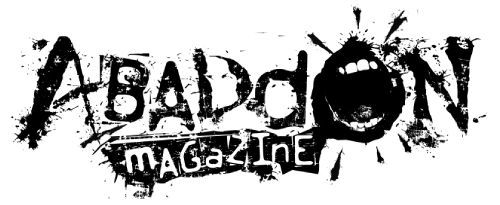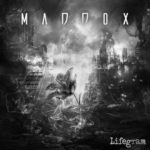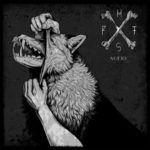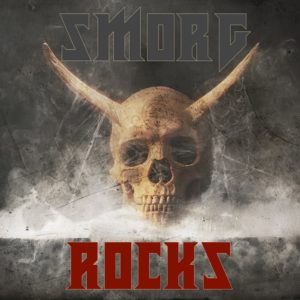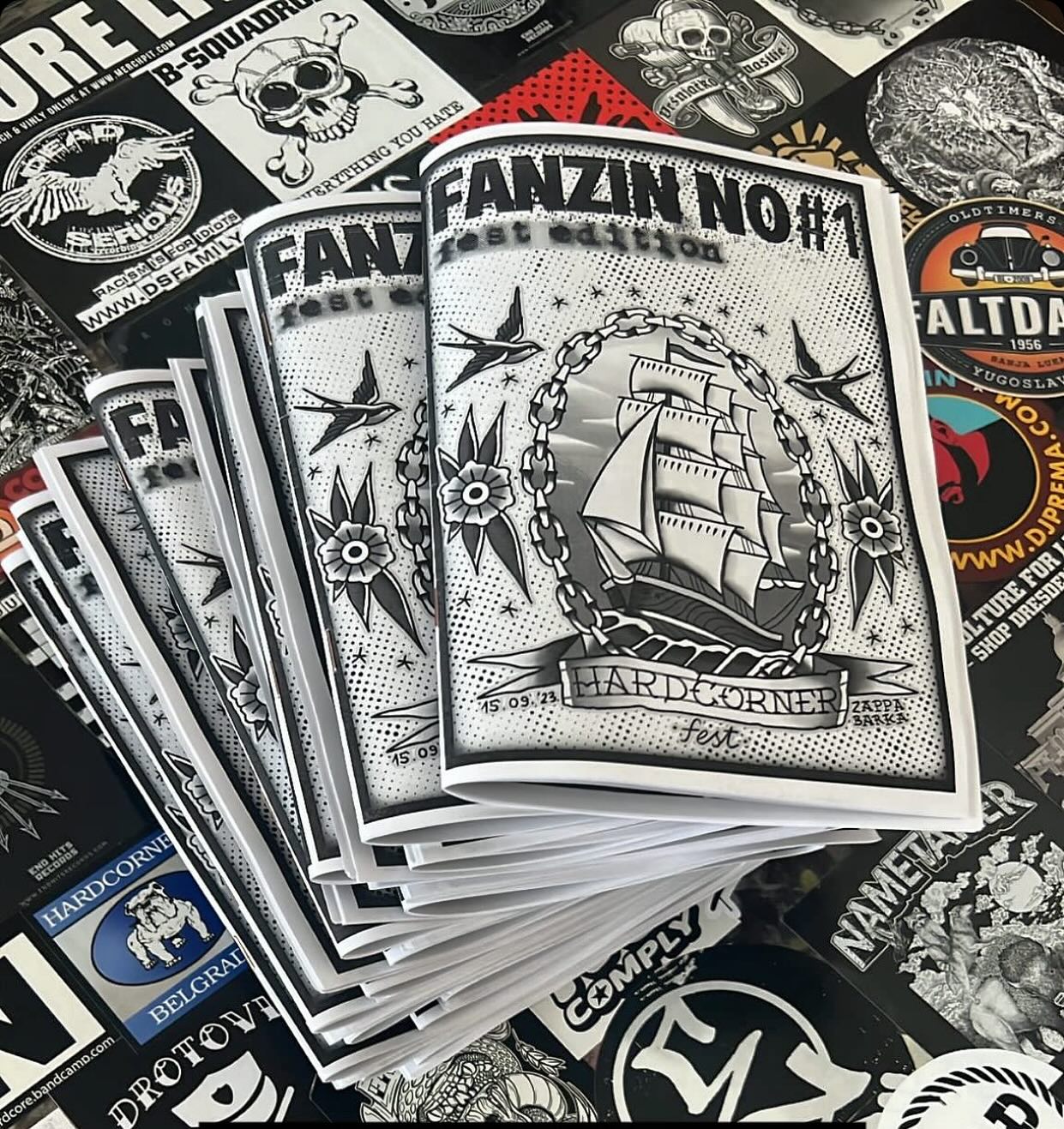Starbynary embarked on a demanding journey through Dante’s Divina Commedia in 2017. Four years later, on November 13th, the band rounded the trilogy with the album “Divina Commedia: Paradiso”. Versatile artist, Luigi Accardo, who is the main composer, keyboard player and the band leader, presents his band in the best light.
Hi! First of all, I would like to thank you and Art Gates Records for offering me the opportunity to talk to you based on review I wrote. I take my job serious, and I have to say if the band or a label asks me for an interview I give a maximum to justify trust. Preparing this interview was harder since the band has deep and complex approach to music, so I hope you will enjoy in questions I prepared.
Hi, first of all let’s to introduce myself. I’m Luigi, Starbynary’s keyboard player and songwriter. Thank you so much, I already read all your questions, this interview is very interesting for me, I really enjoy your questions. I also thank you for pointing out our approach to music, not all of your colleagues notice this.
I am afraid Starbynary is not that recognizable here in our Balkan area, so let’s try to represent it in the best light. Starting from the band name. I explained my theory about it, but now let’s hear yours.
Joe Caggianelli, after a long experience, as singer of Derdian, called his old friend Leo Giraldi and they decided to create “Starbynary” together; this project should mark a turning point into the musical career of both. The name “Starbynary” borns to the concept of astronomy that describes “a star system consisting of two stars orbiting around their common center of mass” it means that this project is a brainchild of two persons (Leo and Joe) that put all themselves into the music of Starbynary as “center of mass”. But situations change and evolve. I joined the band in 2013, I wrote personally three songs for “Dark Passenger”, our debut album. In “Dark Passenger” Mr. Mike LePond (Symphony X) recorded all bass stuff for us. Happy for the response we had after the release of the first album, we immediately started the new project dedicated to the trilogy of the “Divina Commedia”. I started writing the songs on my own, and in the end I wrote all 33 songs of the three albums. Leo Giraldi left the band in 2019, guitarist Ralph Salati is now in his place. He recorded “Divina Commedia: Paradiso”. The line up has changed over the years. Andrea Janko (Angelcorpse) recorded the drums of “Inferno”. Sebastiano Zanotto has been the bass player since “Inferno”, while Alfonso Mocerino (Temperance) is the drummer from “Purgatorio”. Currently Joe and I are also the producers of the band.
Band logo is Stratovarius reminiscent. Coincidence or not?
I’m pretty sure it’s a coincidence. By the way, you are the first to say this. You’re right, it looks like that. Our logo was designed in 2012 by Felipe Machado, a true boss in the field of metal graphics. I recommend everyone to take a look at his website to see how many famous band logos he created!
Founder of the band, Joe Caggianelli, was in Derdian before he formed Starbynary. Absolutely different approach and that is what I like: if you leave the band do not rely on previous works. Did you have any previous experience before Starbynary (I think of metal bands strictly)?
Of course I had other bands before, but I’ve never released any albums with them. In general, however, they were all progressive metal style bands. My first band, Utopia, was a truly talented band. Alberto Locci, the bass player, is one of the best musicians I’ve ever met. Unfortunately we didn’t write an album together, but there is always time, maybe in the future.
You are professional musician. As I see, you graduated baroque harpsichord. How did you discover metal and where is that connection between classical music and metal? Why they fit perfectly under you opinion?
Your question is excellent, the answer would be very long. There are many relationships between baroque and metal music, starting with the typology of the instruments that make up the ensemble. Then there are issues related to the structure and shape of the songs, the search for a “Tactus”, and many other things. I intend to write a musicological article in the future on this subject which I have been thinking about a lot. Personally speaking, I started playing the piano at the age of 6. The first metal album, on the other hand, I listened to when I was 15, now I’m 35 so it’s been 20 years. I have always played both classical and metal music, facing the two worlds with the same professional commitment and the same passion. As you can imagine, I work mainly in the baroque music industry, playing the harpsichord and the organ.
I researched a bit, and I see you are related with Cremona. So, how did someone related to the city of Guarneri, Stradivari, Rugeri and Amati decide to study baroque harpsichord?
I was born in Cagliari, Sardinia. I live in Cremona since 2009, I moved here to graduate from the University of Musicology in 2011. Before studying harpsichord, I graduated in piano. So I chose to devote myself to ancient and baroque music, and I chose to specialize in that side. Cremona is a perfect city for those who want to play this music, indeed!
The first album “Dark Passenger” was released in 2014. Than in 2017 the first part of trilogy was revealed. How did you decide to work on trilogy based on Dante′s Divina Commedia?
The idea of working on a trilogy dedicated to the “Divina Commedia” was by Joe Caggianelli. I tell you the truth: at the beginning I was not very convinced of this. It seemed to me something too big and important. When I then started writing the music, working on Joe’s concept, the passion for completing this work got bigger and bigger, and after each record I couldn’t wait to start writing the music for the next one. In fact, Paradiso came out only a year after Purgatorio.
“Divina Commedia: Inferno” was released for Revalve Records. The next one “Divina Commedia: Purgatorio” brought the record deal with Art Gates Records. What are the benefits of working with Art Gates Records?
We simply thought of changing the label to try to reach as many people as possible. I am very happy with the work of AGR, the guys are very professional, kind and helpful. We hear from you almost every day via email or whatsapp, and we always keep up to date.
Now I have to go back to high school days when I studied Dante. Back then I did not understand a word of it, but as the years passing by I think I know enough so we can make this conversation at least educational. How much preparation did you have before you started working on music and lyrics?
As you can imagine, we studied Divina Commedia a lot at school. For example, I studied it for 3 years during high school. Joe picked up the lyrics and chose the most suitable topics to be set to music. I worked by choosing everything that could be more suitable for our musical proposal. The basic idea has always been, for my part, to remain as close as possible to the text, its meanings, the affections it tells, the sensations, the images.
Divina Commedia is written on what Dante called Italian language, but actually we are talking about Tuscan dialect if I am right. Did you have any help while you were working on adaptation and translation?
We didn’t translate the original text into English, we have made our own version in prose and free description. However, you can find many original verses in the songs, especially the best known ones here in Italy, because they are very significant.
Dante thought that Italian language is the most suitable language for expression. You mix it with English that is more accessible now days and I have to say it is universal metal language. How was that combination of language accepted by audience?
Absolutely English is the language of metal music, you can’t write an album without using English. People appreciated our mixed use of Italian and English, and more. Italian is a perfect language for music, the history of melodrama teaches us this.
I am not quite sure did you use Latin too and have you incorporated some original verses?
That’s right, we used Latin (in the video clip you can hear the famous “Diligite Iustitiam qui iudicatis terram”) and we brought back original verses, recited by Renato Cadel, an expert singer of ancient music, my friend and colleague.
The same as Dante did with using varieties of Italian dialects, you did with your music. Your approach is varied and deep too. How much time and energy and I have to say love were involved in this project?
Thank you for your words. I think this is the only possible approach for a concept of this type. I don’t know if we succeeded or not, but one thing is certain: we had respect for Dante and his masterpiece. You can’t write easy and catchy songs, as someone has reproached us, saying that we should have done so. Music is not just immediacy, it sometimes requires a lot of listening to be understood. Who does not understand this is for me like a musical illiterate. I have no interest in him listening and judging my music. In general I am very quick to write a song, when I start then I want to finish because otherwise I feel incomplete. The arrangements, the vocal lines, the vocal choruses took longer. We were pretty fast I think, if you think that Purgatorio came out a year ago and none of Paradiso’s songs had yet been written.
On November 13th you released the last part of trilogy “Divina Commedia: Paradiso”. Now, from this distance, as the main composer, what can you say, which part was the most difficult to compose?
I should probably answer Paradiso, given the associated musical genre. It is perhaps easier to write a metal piece with the themes of hell, but to be honest it wasn’t more difficult for me, the inspiration was the same. But Paradiso is probably musically more elaborate than the previous two albums.
How does your creative process look like?
It depends on the song, the subject matter, my personal mood at that moment … A lot of things! In general, I’m a keyboard player and so it all starts with the keyboard, of course.
Is there anything that you would like to change now, anything you think you could do it better?
Certainly every new listening reminds me of something different or something that could have been added, or removed! But in general I think it’s normal to have these feelings, I’m happy with the final result, I can’t complain.
This album brought some personal changes. How did that effect on creative process and sound?
The presence of Ralph Salati made a great contribution, new and more modern arrangements, great technique, beautiful guitar solos. His playing is very different from Leo Giraldi’s, I think it can be heard easily. I think Ralph’s playing fits very well with my music, I’m happy with that.
Now when you are done with trilogy, do you have any idea about the future projects? In which direction you will go? Will your future work be based on classical Italian literature too?
At the moment we are focused on the release of “Divina Commedia: Paradiso”. I haven’t asked myself the question about the next album yet, I think Starbynary need now to play live, rather than devote themselves to new records. We’ll see.
What do you like to read personally?
I love the great classics of literature, but I read everything. I can tell you that, probably, my favorite book is “Martin Eden”, by Jack London, but I really like reading.
In your music you are involving a lot of choirs, soprano vocals, string instruments… How do you see the band′s active promotion? In some opera house or theater? I think it would be the best presented in such venues, somehow I do not see you at small clubs or metal festivals.
I would also see Starbynary well in the theater, it could be the right place for our live sets. I hope something like this can be organized, but as you know, it is very difficult for live music in this historical period, especially for metal.
I can’t remember if we mentioned, Starbynary is an Italian band. When I was growing up, and still today, Luca Turilli is the first association to the Italian metal scene. What would you say about Italian metal scene today?
The metal scene is in total decline, there are few places to play live, people, especially young people, no longer listen to this style of music, as young people did in the 80’s and 90’s. I’m afraid the situation is coming to an end, and in a few years there is no longer a real movement. But I’m a bit pessimistic by nature, so maybe I’m wrong!
I have to ask you a question about the corona. How is the situation today in Italy since we were watching horrible scenes from Milan in April and May?
I can’t answer this question, I’m sorry. My opinion is that the general situation was handled very badly from the start. But that’s not a topic I like to address.
How did corona affect you personally, but also the work of the band?
Well, during the first lockdown I had a lot of free time and I worked a lot on the record, remotely, with Joe. At that time we worked mainly on vocal lines. The downside is that we had to wait a long time to go to the studio to do the drums, and also to take the photos for the booklet, we had to hurry in September. The video clip was shot and edited a few days before being released!
Italy is the cradle of art, so, can you extract your favorite period of art in music and favorite composer from your country?
I love Italian music from the Baroque period. If I can recommend a composer, search Spotify for “Michele Mascitti”, recorded by my ensemble, Quartetto Vanvitelli. It is a rediscovered composer, it is an absolute first recording. Let me know if you like it! This is the official video clip, we recorded two albums with his music.
The video can be seen below.
Italy is or better to say was my favorite destination, so when this madness ends, I am looking forward to get back there and maybe to listen and watch Starbynary′s spectacular concert at Milan Scala, why not?
Ahahaha, it would be great!!! So, I hope you’ll be in Italy as soon as possible!
Thank you so much for your tame! Take care!
Thank you too, really! Take care of you!
